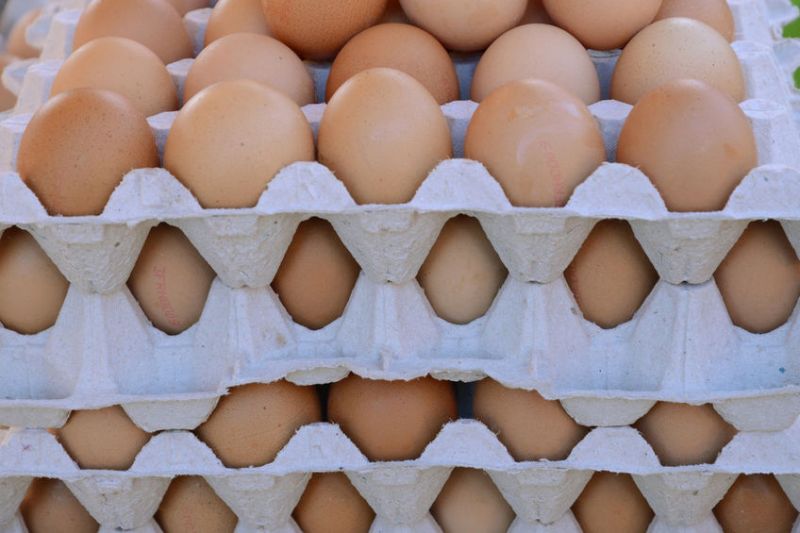
A Dutch egg farmers' leader has warned British producers about the potential dangers of switching to cage-free production.
All major retailers in the UK and some leading food manufacturers have committed to moving away from using cage eggs by 2025 following pressure from animal welfare campaigners.
Egg producers have been calling for greater clarity from retailers about what will replace the birds currently in enriched colony units, although Tesco has said that the supermarket would buy barn as a value product.
In the Netherlands, a similar switch happened some years ago and Eric Hubers, the chairman of the egg farmers' association in the Netherlands, has warned that Dutch producers experienced some severe difficulties in the early years after the switch.
He warned British producers that they may initially end up with more barn eggs than the market could absorb.
"More than 60 per cent of our eggs are barn," said Mr Hubers at the annual NFU conference in Birmingham. "I think you have less than one per cent. We had a very fast development in 2004.
"The biggest supermarket, Albert Heijn, decided to stop selling cage eggs. Then all the other supermarkets did it in one year's time also, so in 2005 you could not buy cage eggs in the Netherlands."
'Too fast'
Mr Hubers said producers had to switch to barn production very quickly and, he said, the switch initially proved too much for the market, which could not accommodate all the barn eggs being produced.
"Poultry farmers really turned over from cage to barn very fast. It was actually too fast," he said. "The production of barn eggs was too big in the years 2006, 2007 and 2008. The people that remained with cage farms had the best margins initially."
The Netherlands is a big exporter of eggs. The country's layer flock amounts to 34 million birds and the country is 300 per cent self-sufficient, creating a huge surplus.
However, the surplus in the Netherlands is equal to the shortage in Germany, where many of the country's eggs are sold.
Eric Hubers said the German market was very important for Dutch egg farmers. However, the German market could not initially absorb all the new barn eggs being produced in the Netherlands.
"Now we can completely provide for the German market, but we had some very nasty years," he said. "I understand that you are now doing the switch from cage to barn.
"This is a big issue in the beginning. When you turn over too quickly, in the beginning you will have too much. The market will not accept all these more expensive eggs."
Cage free UK
The commitment to move to cage-free in the UK started in the summer of 2016, when Tesco announced that it would stop sourcing cage eggs by 2025.
This followed the success of an online petition started by a 14-year-old girl from Sheffield. She initially targeted Tesco with a call to stop selling cage eggs.
The petition went viral. After Tesco announced that it would move away from cage eggs, other retailers, including Asda, Morrisons and the discounters Aldi and Lidl, also made cage-free declarations. Sainsbury's, Marks & Spencer and Waitrose had already stopped selling eggs from cages some years ago.
Since then, Morrisons, Britain's fourth biggest supermarket, has announced that it will bring forward the date by which it intends to go cage-free to 2022.
In the United Kingdom more than half of shell eggs sold in retail are now produced in free range units and free range is continuing to drive growth in consumption.
Demand for eggs
Rose Keen, client manager with consumer analysts Kantar Worldpanel, told the conference that demand for eggs was growing by 4.2 per cent in volume and by 4.7 per cent in value.
This growth was being largely driven by demand for free range eggs. Organic eggs were growing by 15 per cent, she said, although from a very small base.
Thomas Wornhham, the NFU's poultry board chairman, said that the last year had been very challenging in the poultry sector.
Banham Poultry and Blackdown Hills had disappeared, there had been problems with the increased supply of free range eggs - free range has been running into oversupply in the UK with the expansion of the national flock, and there had also been a large increase in feed prices, he said.
"Feed prices are usually represented in a feed ratchet with retailers but for some reason it has not quite worked this time round," he said. "The industry has absorbed a lot of that cost."
